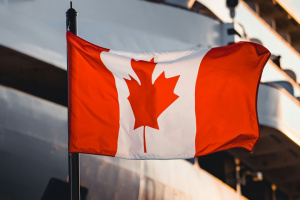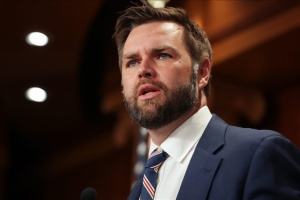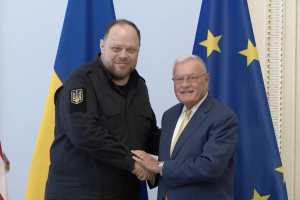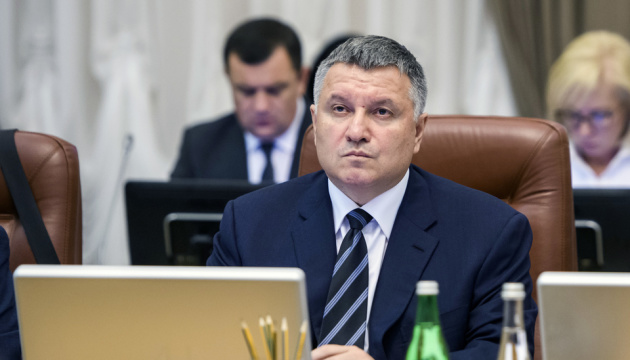
Post-Avakov times: Ukraine needs "someone with a backbone who can withstand the pressure that the old system exerts..."
Arsen Avakov had retained the post of Interior Minister both during the presidency of Petro Poroshenko and during the one of Volodymyr Zelensky, which is why he was often referred to as an "eternal minister." But nothing in this world is eternal so, on July 15, the Verkhovna Rada, Ukraine's parliament, approved Avakov's resignation with 291 MPs supporting the move.
The incumbent chairman of the Parliamentary Committee on Law Enforcement , lawmaker with the ruling Servant of the People faction Denys Monastyrsky, has been tapped to become Avakov's successor and already agreed to the corresponding proposal voiced by President Zelensky. On July 16, the parliament is set to consider his appointment.
A lot has already been said about the main claims put forward against Avakov and his ministry that have accumulated over the past seven years. They range from the high-profile case of Pavel Sheremet murder, the friendly fire mishap in Kniazhychi, the murder of a 5-year-old Kyrylo Tliavov, the "backpacks" case alleging the minister's son involvement, the rape in the Kaharlyk police station, the murder of activist Kateryna Handziuk, the Brovary turf war shootout, and so on... However, despite the many publications on this topic released over the past two days, we decided to look at the issue from a slightly different angle. In the end, the top replacement in the ministry, while bringing no guarantees of changes that could affect the effectiveness of law enforcement, is quite an appropriate pretext to discuss and predict them.
So, to "reform" the Ministry of Internal Affairs following Arsen Avakov's resignation, what exactly should be done?
In a commentary to Ukrinform, human rights activist, chairman of the board at Center for Civil Liberties Oleksandra Matviychuk emphasized that it is necessary to resume police reform and revisit the concept developed by rights defenders to transform the not-always-justified image of a "crime fighter" inherited from Soviet times – into that of the agency serving the public, whose efficiency is measured, first of all, by the level of public satisfaction with their performance.
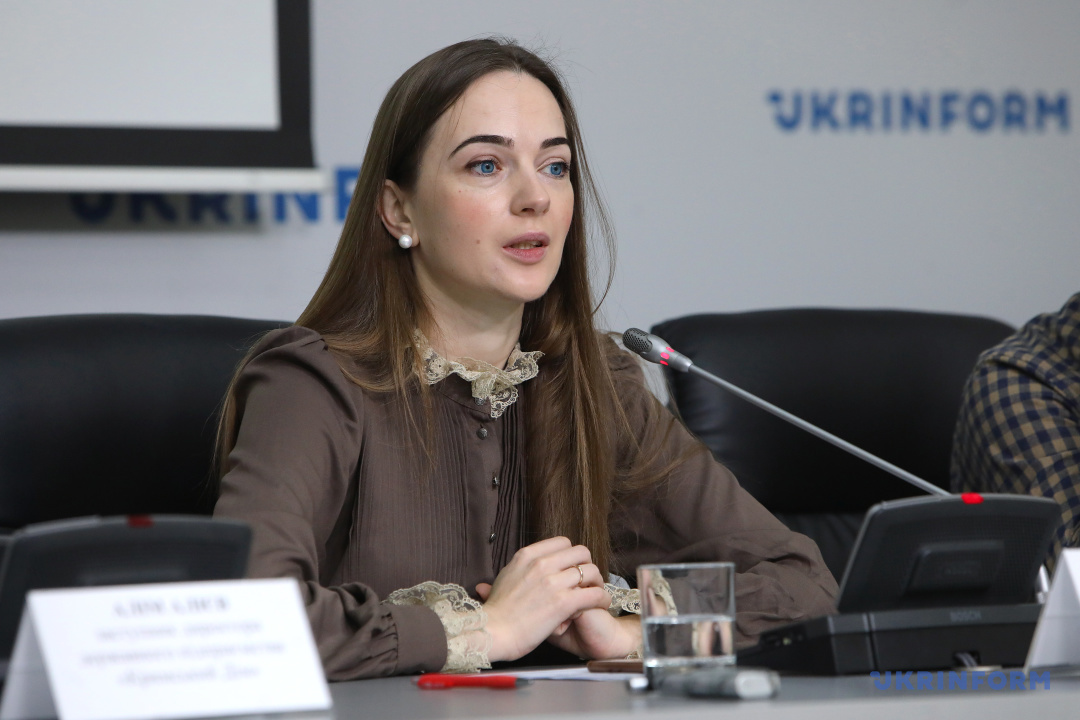
Oleksandra Matviychuk
And here lie a number of problems: according to a survey by the Democratic Initiatives Foundation and the Razumkov Center, more than 21% of respondents “rather trust” the Ministry of Internal Affairs (almost 28% rather trust the National Police – Ed.). This is frankly not enough. To rectify the situation, "it is necessary to translate such principles as depoliticization, demilitarization, decentralization, the rule of law, and accountability to citizens into the language of legislation and concrete practical solutions," the expert says.
“In this vein, it is worth mentioning the Strategy for the Development of the Bodies within the System of the Ministry of Internal Affairs until 2020, which, however, wasn't even half-implemented. Indeed, in addition to creating patrol police, failed certification of personnel, and several reforms undertaken in the field of public safety, not much has happened,” says Ievhen Krapivin, a lawyer and expert with Centre for Policy and Legal Reform.
This document, the expert notes, lays down a huge number of rather sensible measures, having implemented which, not only will the country receive a new model of the National Police, it will also see a new model of all other bodies that are part of the Ministry of Internal Affairs: the State Border Guard Service, the State Migration Service, the State Emergencies Service, and the National Guard. "On principle, Avakov's successor already has a ready-made guide on what to do, and how," says Krapivin.
This, experts say, is a short and generalized view.
As for more specific steps, first of all, at the Ministry's level, it is necessary to develop a management system in order to exclude the leadership's dependence on political influence. This is about "the possibility of approving nominees for leadership positions bypassing competitions, the ministry's influence on the approval of the National Police budget, and other things of this kind," says Oleksandra Matviychuk.
Besides, she goes on, it is also important to provide more autonomy to territorial units, including in planning routine, personnel decisions, and budget appropriations, all to ensure their greater responsibility before their respective local communities through the community policing model in the field of ensuring public order.
Executive chief of the human rights initiative, Mykhailo Kamenev, believes that it is necessary to ensure political neutrality of the police, as well as a certain freedom of action in terms of personnel appointments. “The head of the National Police should not be obliged to coordinate with the minister those tapped as their deputies and heads of regional units. Because, in fact, these will no longer be their people, but those loyal to whoever is (in the lead of the Ministry of Internal Affairs – Ed.) at 10 Bohomoltsa Street in Kyiv.
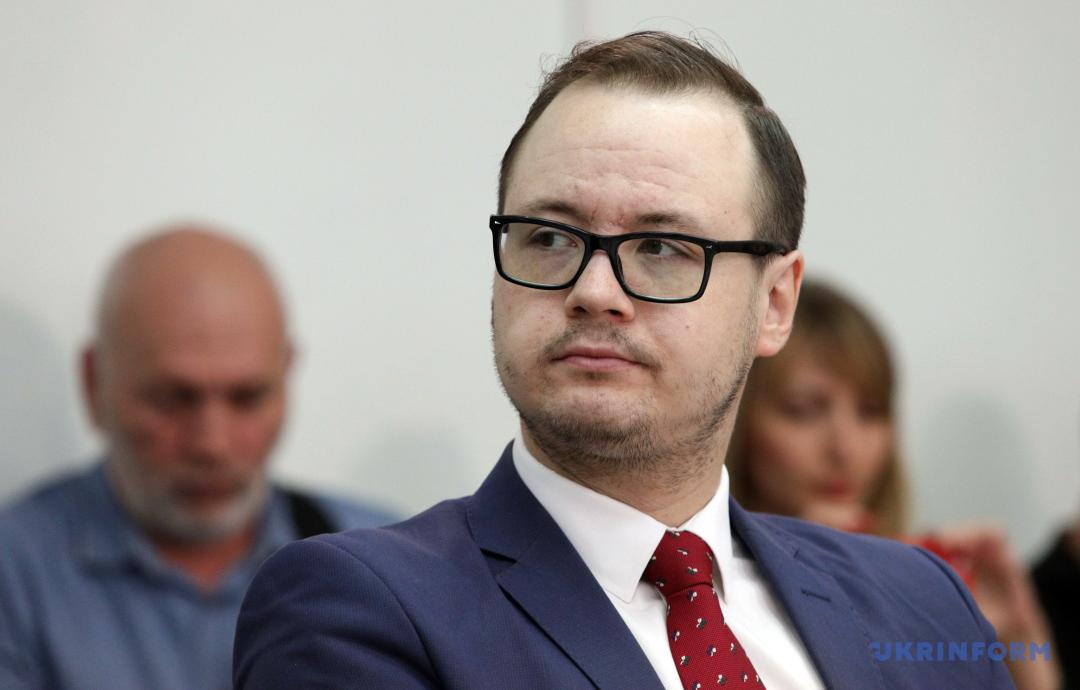
Mykhailo Kamenev
Kamenev emphasizes: “We need to break this scheme and further to deeply engage in personnel issues. Simply put, it is necessary to introduce compulsory competitions throughout the National Police ”. If today competitions are mandated only for a nominee's first appointment to the body, all further career promotions mainly depend on who and how "courts" the leadership. “It often happens that it's not the best ones, not professionals who get promoted but those who are more 'convenient' for their chiefs. This is a vicious circle. When people go up the career ladder exclusively according to this logic, then, as per the same logic, they also pull others up along the way,” the executive chief of the human rights initiative is convinced.
Secondly, it is necessary to reconsider the approaches to demilitarizing the body, as well as to decide on the fate and subordination of its military units, such as the National Guard and the State Border Guard Service.
“Developed democracies also have similar units, for example, the Gendarmerie in France. But over there, these units are not specifically subordinate to the interior minister in order to ensure a system of checks and balances in the country,” says Matviychuk.
In turn, Mykhailo Kamenev highlights the fact that, from the constitutional perspective, there are certain issues with the border guards and the national guards. “These are military personnel who, however, are subordinate to a civilian minister,” he said. "Accordingly, a situation often arises, especially in the context of the National Guard, where public order at peaceful assemblies is, in fact, ensured by military."
This is conceptually wrong. This means that it is necessary to distinguish between law enforcement functions (policing) and military ones. For instance, Kamenev suggests that, on the one hand, there should be border guard troops, which will be responsible for protecting the border, and on the other, the border police, possibly as part of the National Police, which will deal with border crossing formalities, draw up administrative fines. and run a pretrial investigation. “Actually, speaking about the latter, our border guards often complain that, say, they have no authority to investigate crimes they initially expose. To this end, they always need to involve the police. And it's the same with the National Guard. Therefore, I believe the issue of delimiting functions must be resolved,” the expert noted.
The third thing is the notorious "statistical race" system must be thrown out in trash where the police officers' efficiency is determined by the indicators imposed from higher offices, including on the number of crimes that must be solved within a certain period, by categories. “It should be replaced by the police focusing on meeting the needs of local communities, each with their specific peculiarities depending on the region. Also, there should be a new system of assessment criteria, including quality of police response to citizens' inquiries, the efforts toward addressing the needs of the public, the continuity of working relations with local organizations, media, self-government, etc.,” says Oleksandra Matviychuk.
In the context of the police focus on the needs of local communities, leading expert at Kharkiv Institute for Social Research Andriy Chernousov noted: “In fact, Ukraine's decentralization reform has been completed but the police remained as centralized as they were.”
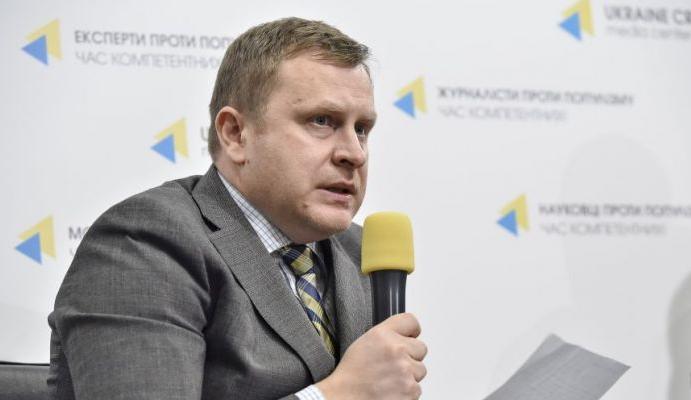
Andriy Chernousov
Masses of community police officers, he adds, seem to have been appointed, but this is only according to ads. The actual regulatory documents still have the old-style precinct officers ("dilnychi" – Ed.). “I think that it is necessary to divide competencies between the national and municipal police. Let the first ones deal with probing grave crimes, doing statistical work, etc., while the latter should engage in lower-tier local cases, misdemeanors, public order protection, and traffic control…" added the expert.
Fourthly, the system must be overhauled to effectively prevent and respond to cases of torture and ill-treatment of held persons. “That's including with close involvement of the claimant, improvement of the internal control system, addressing issues as regards recording (such wrongdoings – Ed.), etc.,” the rights activist noted.
The issue of disciplinary action and internal investigations is no less relevant. Now, says Mykhailo Kamenev, such investigations remain at the vealed internal level with no beans spilled.
The executive chief of the human rights initiative recalled that, when in March 2018 the Verkhovna Rada. Ukraine's parliament, adopted Law No. 4670 on the Disciplinary Charter of the National Police, public sector activists were able to ensure that the lawmakers introduce to legislation the following norm: representatives of the general public may also be included in disciplinary commissions. However, three years into the Charter's adoption. public activists have never been involved in disciplinary commissions, Kamenev convinces: “Of course, when it comes to investigating some lost badge, there's no need for public control, but there is one when it's about such high-profile cases as the murder of 5-year-old Kyrylo Tliavov, torture and rape in Kaharlyk..."
And the last thing, we must not forget about the measures aimed at both upping professional skills of personnel, as well as protecting the rights and ensuring social guarantees for the police themselves, experts say. “A police officer who is unable to defend their rights before his superiors, facing a choice of either quitting service or carrying out an illegal order, will never be able to effectively serve and protect,” Oleksandra Matviychuk assures.
“As for the status of a police officer... First of all, I would like to recall the bonus system. Today, bonuses make up most of the salary, and therefore it is very easy for a chief to retain influence over the independence of their subordinates, forcing them to perform certain illegal actions, etc. This needs to be fixed,” says Ievhen Krapivin.

Ievhen Krapivin
At the same time, the CPLR expert noted that there is almost no thorough vetting in the police, such as psychological tests. “Despite the peculiarities of the job, there is as much as one psychologist per district ... The case of the murder of 5-year-old Kyrylo Tliavov shows that some extremely inadequate cadres often make their way to the police ranks,” said Krapivin.
Finally, as regards public safety... Despite the fact that the newly-established patrol police are generally praised, Krapivin says, problems remain there, too. “One of them is that patrol police deal with administrative cases, while the Code of Ukraine on Administrative Offenses was last time updated in... 1984. It is high time to amend it, rewrite procedures and harmonize them with other laws. And it's not only the Code – a lot still needs to be fixed so that the police have actual powers and the mechanisms applied work properly. Given a mediocre-quality and contradictory regulation, the police are often forced to go for violating certain rules, for example, to at least somehow stick to law when holding someone in custody before the trial,” says the CPLR expert.
“As we can see, this is not about some ad hoc changes, this is about a new philosophy of policing. It requires a comprehensive vision, resolute action in its implementation, and someone with a backbone who would be able to withstand the pressure that the old system exerts,” Oleksandra Matviychuk concluded.
Myroslav Liskovych, Kyiv

